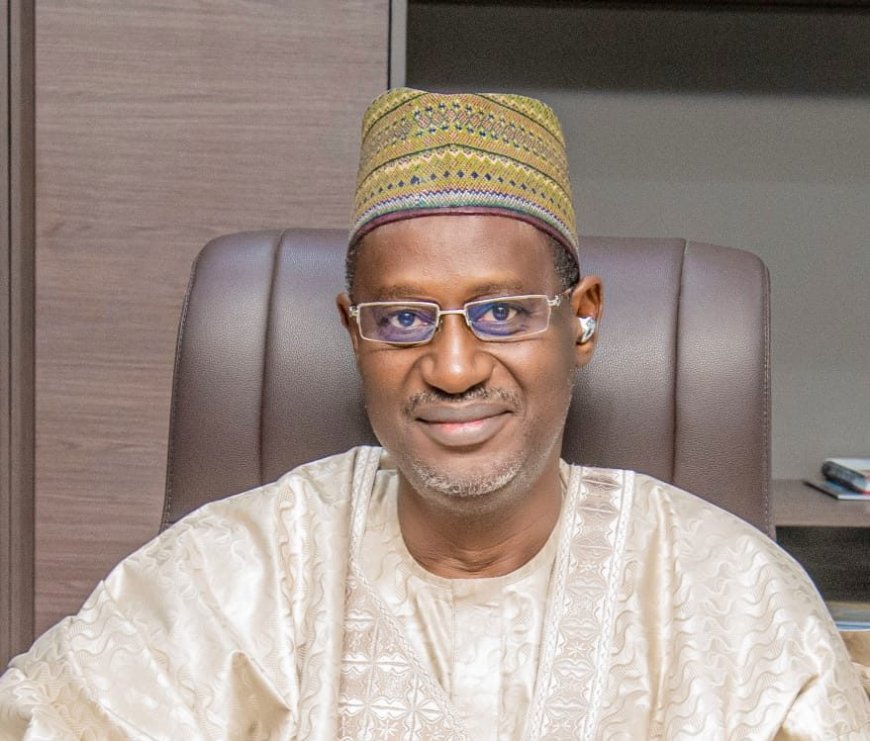10,000 housing units in progress, says Dangiwa

Housing Minister Ahmed Dangiwa has marked his second year in office with what he described as bold reforms that are transforming Nigeria’s housing sector, reporting over 10,000 housing units already underway across 14 states and the FCT.
Since his appointment by President Bola Tinubu, on August 22, 2023, Dangiwa has spearheaded what the Ministry describes as a “historic reset” of the sector. Under the Renewed Hope Agenda, bold reforms and practical solutions are being rolled out to directly tackle systemic challenges and deliver results in record time.
A key focus has been Nigeria’s housing deficit, conservatively estimated at over 17 million units. In response, the Ministry launched the Renewed Hope Housing Programme, a three-tier model comprising cities, estates, and social housing. In just two years, over 10,000 housing units have been commenced across 14 states and the FCT. This marks an unprecedented pace compared to the 3,500 units delivered in the eight years before this administration.
Flagship projects include a 3,112-unit Renewed Hope City in Karsana, Abuja; a 2,000-unit city in Ibeju-Lekki, Lagos; a 1,500-unit city in Kano with an additional 500-unit estate; and 250-unit estates in twelve states, including Osun, Delta, Katsina, and Nasarawa.
The Ministry describes this as “the most strategic and impactful initiative” that would accelerate the Renewed Hope target of a $1tn GDP.
To improve planning and investment, the Ministry has led the establishment of the National Housing Data Centre, a centralised digital repository of housing, land, and urban development data. Once fully operational, it will provide real-time insights to guide government policy, attract investment, and ensure transparency in housing delivery.
The Ministry has also taken steps to tackle the spiralling cost of building materials by initiating Building Materials Manufacturing Hubs across the six geopolitical zones. These hubs are expected to cut costs by up to 25 per cent and create thousands of jobs.
In response to years of housing fraud and abandoned projects, the Housing Fraud Reporting Platform has been finalised to empower citizens to report fraudulent developers. Additionally, the Safeguarding FG Lands Initiative, launched with the Nigeria Police, will help recover encroached government land for redevelopment.
The shortage of skilled construction workers is also being addressed through the National Artisan Skills Acquisition Programme, designed to train thousands of young Nigerians as carpenters, plumbers, masons, and electricians, with direct links to housing projects.
On partnerships, the Ministry has secured a landmark agreement with Shelter Afrique Development Bank to finance 5,000 affordable homes. Collaborations with UN-Habitat and the World Bank are also expected to channel technical and financial support to scale housing and urban reforms.
Reflecting on the progress, Dangiwa said, “We inherited a housing sector riddled with systemic challenges. In just two years, through the support of Mr. President and our partners, we have rolled out strategic programmes that are delivering results. We are not just building houses; we are building hope, dignity, and prosperity for millions of Nigerians. And we are only just beginning.”
To address urban decay and deteriorating slums, the Ministry has also implemented the National Urban Renewal and Slum Upgrade Programme, which has already transformed more than 150 communities nationwide with rehabilitated roads, drainage systems, clean water, solar power, schools, and healthcare centres.
On the finance side, long-standing weaknesses in Nigeria’s mortgage system are being reformed. Under President Tinubu’s directive, the Federal Mortgage Bank of Nigeria and the Federal Housing Authority have expanded access to single-digit mortgages, zero-down-payment rent-to-own schemes, and innovative public-private partnership models that have already mobilised over N70bn in private capital.
For low-income and vulnerable Nigerians, the proposed Renewed Hope Social Housing Programme aims to deliver 77,400 affordable homes, 100 in each of Nigeria’s 774 Local Government Areas, through affordability-based pricing. Beyond housing, this initiative is projected to create over two million jobs, stimulate local economies, and spread development into rural and peri-urban communities.









